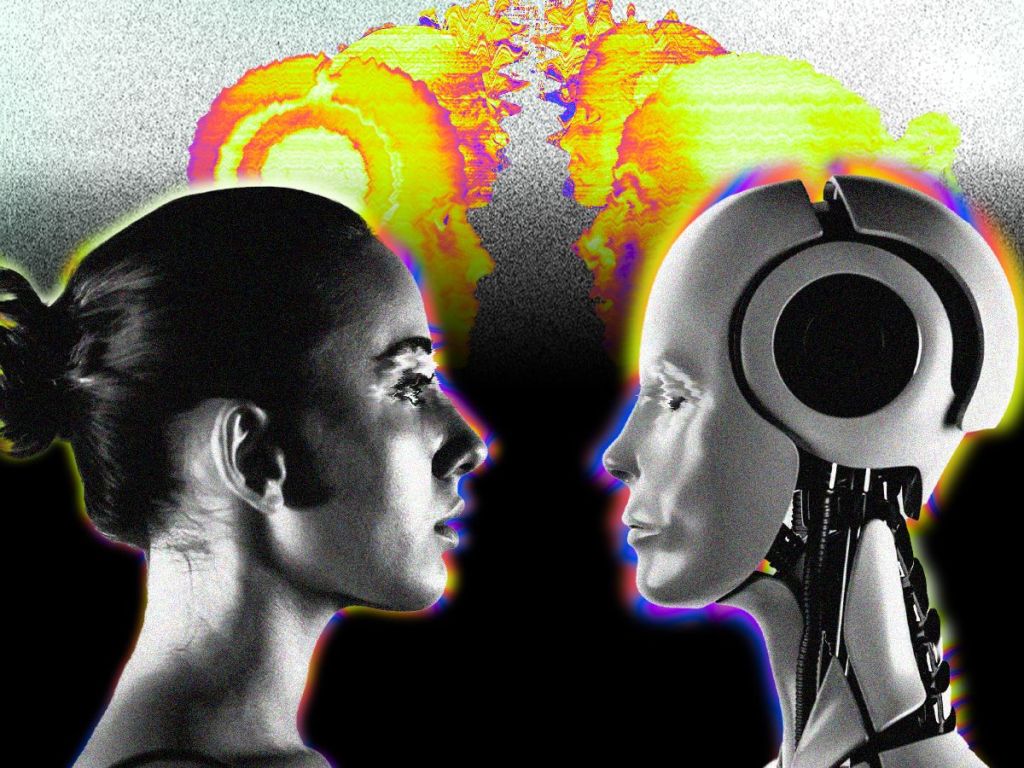Aimee Smith, a Sydney voice actor, says she was approached several times by AI companies about potentially lending her voice for a text-to-speech model. But, she declined.
“When [these companies] want to hire professional voice actors, the rates do not represent the amount of work we could potentially lose by giving them our voices,” she explains.
“It is just not worth it.”
As AI voice cloning tools like ElevenLabs become more widespread alongside generative AI tools like OpenAI’s Sora and ChatGPT, Aussie voice actors say there is now demand for Australian accents from AI firms.
Simon Kennedy, a veteran voice actor based in Sydney, also shares with The Chainsaw that as sophisticated AI voice cloning tools are, “companies creating these synthetic voices do not have as much source material to work with when it comes to Australian voices.”
But that’s only temporary.
“It’s a matter of time when people start selling their voices… many people in our industry are still a little blindsided by this,” he explains.
‘Ethical’ AI voice clones?
Last year, cult video game franchise Cyberpunk 2077 revived late Polish voice actor Miłogost Reczek’s vocals for the game’s DLC instalment, Phantom Liberty.
According to Bloomberg, Cyberpunk 2077’s production studio, CD Projekt Red, sought consent from Reczek’s family to resurrect Reczek’s voice with AI. Reczek’s family consented to CD Projekt Red’s use of the actor’s vocals, and the studio claimed family members were “very supportive”.
While CD Projekt Red’s approach was viewed by many in the gaming community as an honest, transparent move, ethical concerns remain. Although this case demonstrates the ‘3C’ principle – consent, control, compensation – in action, Kennedy expresses a strong belief that as a voice actor, “a synthetic version of yourself should cease to exist with you.”
“What a lot of people don’t realise is that you’re robbing the work of a next generation of voice actors. There could’ve been another actor out there who could’ve done an amazing job at filling Reczek’s role, for example… that [job] could be worth a week’s rent or two,” he explains.
In fact, Kennedy himself was a beneficiary of video game voice acting. When famous Australian voice actor, Terry Gill who voiced the character Maurie in Ty The Tasmanian Tiger passed away, Kennedy had the opportunity to fill Gill’s shoes and voice Maurie.
Voice actors unite
Both Smith and Kennedy reveal to The Chainsaw that the Media, Entertainment And Arts Alliance (MEAA), Australia’s largest union for creative professionals, have been convening to discuss measures to protect voice actors from AI.
In the US, the National Association of Voice Actors (NAVA) have been lobbying for better safeguards around the technology. Smith and Kennedy share with us that what their peers in the US are doing have become a catalyst for them to push for change back home in Australia.
“Your voice is as unique as a footprint. It’s a form of identification,” Smith says.
The Australian federal government announced its intention to draft regulation to safeguard AI development, and curb harms stemming from AI misuse. However, much of the current focus lies in deepfake technology.
“[When it comes to] things like AI-generated audio, frankly, there is not much difference. It is essentially the unauthorised use of a person’s likeness – whether that be physical or vocal – for purposes they have not consented to.”
“This [issue] is bigger than our industry. There will be huge implications for everybody. There may come a time when it will be incredibly difficult to differentiate between whose voice is real and which is fake,” Smith adds.
But Smith tells me that on a more positive note, the proliferation of AI voice cloning brings about newfound appreciation for authentic human voices by audiences. As convincing as AI-generated vocals are able to, say, impersonate Taylor Swift, they are still missing the human touch.
“Human connection, storytelling, being able to connect with directors, and breathing life to a story is what voice actors offer that differentiate us from AI,” Smith concludes.





